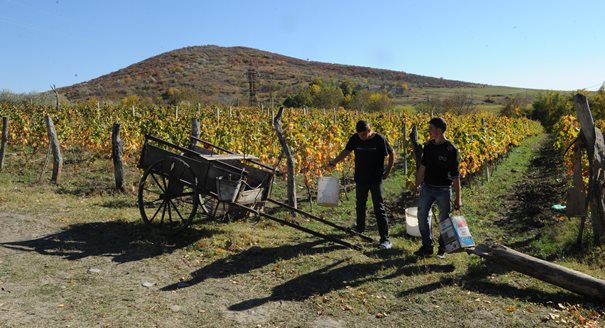The focus is on the big picture. Russia’s Near Abroad policy, “geopolitics,” the grand clash of “East versus West,” is the exciting themes. But, ultimately, each big picture, as a huge puzzle, is made of a myriad pieces, without which, the picture does not come together. Perhaps, this was what former West German Chancellor Helmut Schmidt meant in 1979 when he declared, “whoever has visions should go to a doctor.” We need to focus on the work of the day as well as plan for the year.
The big picture is important: market access, duties, infrastructural development and normative alignment. But, the Eastern Partnership has been significantly undermined by Armenia’s last minute decision to reject the EU proposal and Azerbaijan’s limited interest in speedy economic integration. These trajectories limit the scope for normative Europeanization. So how do we go about regionalization, working with rather than merely against reality? How do we make Vilnius count, both for Georgians and for the others in the South Caucasus?
One answer is “focus.” With Georgia’s commitment in Vilnius, a number of indirect regionalization initiatives can take place. The bilateral dynamic stemming from Tbilisi is clear. Trade with Russia has been increasing; Georgia is engaged in the development of regional transport infrastructure with Azerbaijan and Turkey. And economic cooperation with Armenia, already dense, can improve. Besides, Georgia is in fact central to the development of region-wide logistics and energy networks. In this scheme, this should not be about “them and us;” it should be about doing business with the EU through Georgia. Maybe doing business as well with Russia but according those norms?
The how entails a myriad pieces in the puzzle. Countries in the South Caucasus may be encouraged to integrate Georgia into their productive network, so as to gain the “made in Georgia” stamp and thereby market access. In this scheme, normative power still applies. For instance, IP or sanitary standards applied in Georgia will inevitably have a regional spill-over. To make each piece of this puzzle stand, we must develop more sophisticated frames of cooperation going over and beyond bilateral Chambers of Commerce. And we must tone down confrontational rhetoric. We know we have made the right choice, so let’s go about proving the merits of our choice rather than illuminating the faults of the alternative.
We need to work on the quality of each piece. To be a hub, we need capacity, more and better governance rather than merely deregulation. In terms of policy development, we need European expertise in regional governance, gender mainstreaming, and social partnership management. We need to think in terms of productive clusters, focusing on SME growth, mutuals, crowdfunding mechanisms or, in sum, tighter social partnerships. This must come hand-in-hand with the integration of Georgia and Moldova in EU policy instruments, ranging from Life Long Learning Programs to Horizon 2020. If we can pass this capacity on, we make a point; if we use it, we make a point; if we say, “this is the benefit,” we stand to be more convincing than when we argue “our vision is better.”
The bottom line is this. Europeanization must mean that Georgia becomes an attractive market in terms of human and infrastructural resources, a country which is a reliable contract guarantor and, thereby, a hub and a model for the region as a whole. Even if EU membership is not an ambition the Georgians can harbor today, this kind of region building is bold and attractive enough a vision to keep the legitimacy and motivation to go from individual pieces to a picture. Europeanization should not just mean just any growth, but a new kind of growth, where pieces come together to form an attractive picture. I think that this should be also attractive to Russia as well.
Of course, there are apparent priority sectors where Georgia does seem to have a competitive advantage, such as tourism, agriculture, energy and energy intensive industries, which are often driven by strategic foreign investors. However, unless we have this bottom-up approach, Georgia will not have the human resources to assimilate, exploit and disseminate best European practices. If Georgia is given the chance, it can become a gateway for Europe and to Europe but a gateway for Russia as well. If treated as an outpost, Georgia will be isolated and the potency of the call for Europeanization eroded. Much is at stake. Georgia’s quest should not be about choosing between Brussels and Moscow, but about the kind of growth and society which we envisage. And to drive such an argument, we need focus to focus on the chores of the day.
The views expressed in this material do not necessarily coincide with those of the Georgian government.
Tedo Japaridze is the chairman of the Foreign Relations Committee in Parliament of Georgia.
